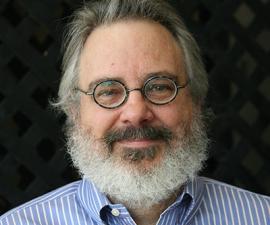

Research Bio
Mark Wilson is a Distinguished Professor of Education at the University of California, Berkeley. He received his PhD degree from the University of Chicago in 1984. His interests focus on measurement and applied statistics, and he has published 167 refereed articles in those areas, 74 invited chapters in edited books, and 15 books. He was elected President of the Psychometric Society, and, more recently, President of the National Council for Measurement in Education (NCME); he is a Member of the US National Academy of Education, a Fellow of the American Educational Research Association, and the American Psychological Association, and also is a National Associate of the US National Research Council. He is Director of the Berkeley Evaluation and Assessment Research (BEAR) Center. His research interests focus on the development and application of sound approaches for measurement in education and the social sciences, the development of statistical models suitable for measurement contexts, the creation of instruments to measure new constructs, and scholarship on the philosophy of measurement.
His research program is focused on four mutually supportive areas.
(a) The development of a framework for statistical modeling (Explanatory Item Response Modeling) that allows for the extension and adaptation of psychometric models in ways that make them more responsive to problems that arise in education and other areas of application.
(b) The application of measurement framework—the BEAR Assessment System (BAS) —to a range of assessment situations across the social sciences, but concentrating on the development of a body of work that can support use of sound assessment approaches by teachers and other professionals.
(c) The establishment of a framework for measurement practice informed by the philosophy of measurement.
(d) And the development and dissemination of policy positions in educational testing and assessment, based on the research mentioned above.
Throughout all four strands of this broad research agenda, there is a continuing theme of the application of newer conceptual and statistical methods to pressing problems of educational and psychological research. The philosophy underlying his approach to these areas is that there are critical and distinctive problems involved in the measurement, statistical analysis, reporting and usage of psychological and educational constructs and that research methods used to investigate these problems must be sensitive to the best available substantive theory.
Research Expertise and Interest
measurement, psychometrics, assessment, development of assessment resources, assessment systems
